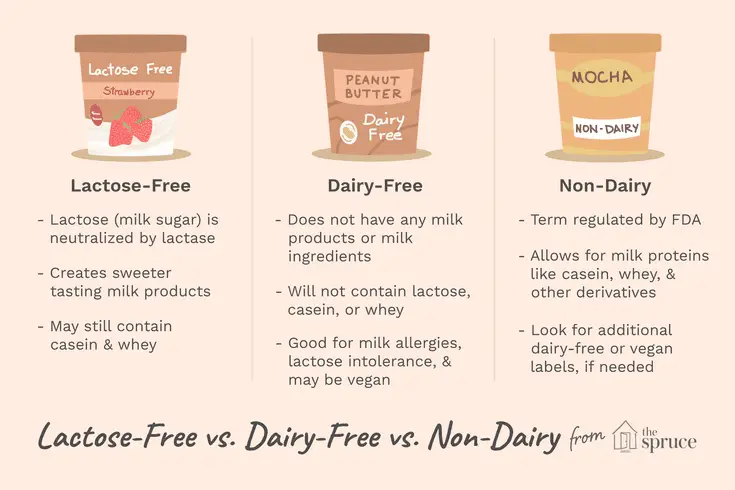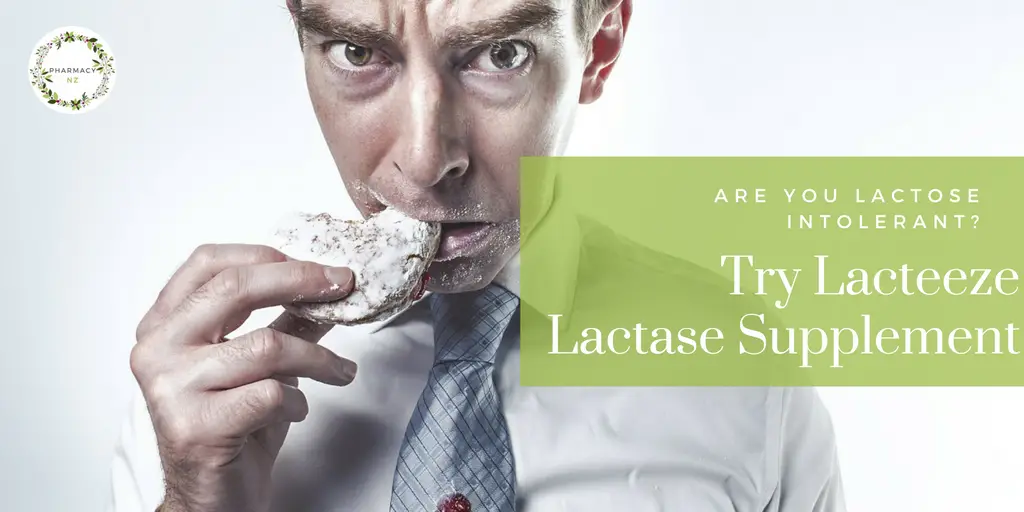Why Is Cheese Terrible For Lactose Intolerance
Before getting into how Kraft is a miracle for lactose intolerant people, lets learn why cheese is terrible for you in the first place.
Cheese contains milk, and milk contains lactose.
What is lactose?
Lactose is a sugar found in milk and dairy products.
Our small intestines typically have an enzyme called lactase that can break down these sugars and absorb them.
If you are lactose intolerant, your body cant break lactose down.
So what?
It means that the leftover lactose goes to your colon, makes friends with the bacteria, and wreaks all sorts of havoc on its way out. Think bloating, gas, and diarrhea all that fun stuff!
The 9 Cheeses Lowest In Lactose
If you consider yourself in a serious relationship with dairy, you’re definitely not alone. And if you find your love affair with cheese, in particular, is unrequited, you’re also in good company. It turns out about 65% of the world’s population is lactose intolerant, meaning milk-based treats like yogurt, ice cream, and yes, cheese, can produce an array of undesirable digestive symptoms. Luckily for some, cheeses lower in lactose may be the key to happy, pain-free snacking.
How Is That Possible
Remember how we said that lactose is a sugar?
If you read the back of the label, many of Krafts cheeses say 0% sugar.
That means that the product does not contain lactose and is generally safe for lactose-intolerant people.
Many labels on Kraft products will also say contains 0g of lactose per serving for extra peace-of-mind.
Don’t Miss: Charcuterie Cutlery
Here’s Our Advice For Safe Cheese Eating
While it’s true that some cheeses are lower in lactose, it’s important to keep serving sizes in mind. Even a low lactose cheese may screw with your stomach if you eat a ton of it. And the truth is that even among folks with diagnosed lactose intolerance, sensitivity to lactose can vary greatly, Dr. Agarwal explains. Something that barely affects one person could leave another curled up in the fetal position with stomach cramps, which is why Sasson cautions against throwing back a bunch of cheese without giving it a try first. No matter what cheese you’re eating , she recommends tasting a small amount first, then giving yourself time to see how your body reacts.
In general, it’s also best to eat cheese as part of a larger meal whenever you can, because eating it with other foods can make it easier to digest, Sasson says.
And unfortunately, Dr. Agarwal says there isn’t always an easy way to know for sure how much lactose is in a product, unless it’s explicitly marked low-lactose or something similar. So if you’re really not sure how much lactose you should eat, check in with your doctor first.
If you can’t tolerate even a small amount of Parmesan, your problem with dairy might be something elselike a milk allergy. Sasson says that while lactose intolerance isn’t life threatening, a severe allergy definitely can be, so if you’re not sure what you have or just how sensitive you are, talk with your doctor before experimenting with any cheeses.
Related:
What Happens If Youre Lactose Intolerant And You Keep Eating Dairy

Small intestine People with lactose intolerance are unable to fully digest the sugar in milk. As a result, they have diarrhea, gas and bloating after eating or drinking dairy products. The condition, which is also called lactose malabsorption, is usually harmless, but its symptoms can be uncomfortable.
Recommended Reading: How Do I Make Mac And Cheese Without Milk
Don’t Miss: Is Babybel Cheese Pasteurized
Eating Out When Lactose Intolerant
You can still dine out while following a lactose-free diet. Ask your server if there’s a guide for the menu that shows you which foods contain milk. Or let your host know which foods you’re avoiding. Take a lactase supplement in case dairy ingredients slip in. Eat simply. For example, skip cream sauces and dairy condiments like sour cream.
No Sugar Means No Lactose
On every Nutrition Facts panel, youll find the amount of sugar in that food. If it says 0g, that means theres no sugar, and no sugar in Cabot cheddar cheese means no lactose. To be sure our cheese is lactose-free, look for the Naturally Lactose-Free icon on the packaging of your favorite Cabot cheese products.
Also Check: Does Babybel Need To Be Refrigerated
Does Cheese Have Lactose
We all know that traditional cheese is made from milk, which is composed of fat, protein and lactose. Because of this, many people tend to assume that cheese contains lactose too. However, it is not the case.
In fact, milk sugar – also known as lactose – is nearly completely removed from the cheese curd during the cheesemaking process. To help us understand the cheesemaking process a little bit better, lets take a look at the main steps below:
So, what happens to the lactose in this process? The very first step of the cheesemaking process the acidification of the milk sees the majority of the lactose present in the milk converted into lactic acid. At the end of this step the majority of the lactose is gone and we are left with a yoghurt-like substance which will ultimately become cheese.
Next, when the rennet is added, the soured milk starts to curdle and separate from its liquid part whey. Traces of lactose do get trapped in these protein-rich curds, but the exact amount will depend on how much or how little whey is drained off at this stage.
It should also be highlighted that lactose is present in milk from cows, sheep, goats and buffalo, so the common misconception that goats milk is better for lactose-intolerant people is not necessarily true.
The Cheese Lady x
Cheeses You Can Eat If Youre Lactose Intolerant
Engin Akyurt/Pexels
Being lactose intolerant is not the end of the world. OK, maybe for a cheesemonger, but how often does that happen? An individual who is lactose intolerant cannot digest lactose, aka the naturally occurring disaccharide sugar found in milk.
Not being able to digest lactose adequately makes it uncomfortable for the person to consume dairy products such as ice cream, milk, or cheese. Ugh, cheese. Thats the real gut-wrenching truth. But dont be so quick to rule out all cheese from your diet, fellow lactose intolerant people. There are actually 10 kinds of cheese you can eat. We spoke with Jennifer May, BHSc , founder and director of Sydney City Nutritionist and Food Intolerance Australia, to learn more about lactose intolerance and how to safely add cheese to your diet.
Read Also: How Long Does Babybel Cheese Last Unrefrigerated
What Foods Are Lactose Free
The most affordable and popular non-dairy products among Malaysians are soy, oat and almond-based alternatives, all of which can be found at your nearest grocery store. Many local brands now offer plant-based dairy as an alternative to animal milk such as almond milk. 3. Everyone can go lactose-free
Is Cheese Or Milk Worse For People With Lactose Intolerance
This is a question that lactose intolerant people often ask.
Generally speaking milk contains more lactose than cheese.
Thus, on average milk is worse for lactose intolerance.
But why is milk worse for lactose intolerance? In other words, why does milk have more lactose than cheese?
Well, cheese is made from milk, lets remember. You first need milk to make cheese.
During the cheesemaking process, some of the lactase in the milk is broken down by bacteria, so the cheese ends up with less lactose in comparison with milk.
Cheese has lower lactose content than other dairy products since much of the lactose is removed during production.
Recommended Reading: Does Babybel Cheese Have To Be Refrigerated
Whats The Best Cheese For People On A Lactose
There are a number of lactose-free cheese brands that are made by using the enzyme lactase to break down any lactose, however there are also a number of hard cheese varieties that naturally contain almost zero lactose.
According to the Australian Dietary Guidelines, people with lactose intolerance can generally eat cheese, as many types of cheese, specifically harder mature cheeses, are very low in lactose. These cheese types usually have a lower lactose content than softer cheese because lactose is lost when whey is removed and the maturation process also uses up lactose.
The following table lists various cheese types that contain negligible amounts of lactose.
|
Cheese |
Dont Miss: How Long To Microwave Mac And Cheese
Is There Lactose Free Pizza

Luckily, dairy-free pizza crusts are available from many manufacturers. That means making your own dairy-free pizza can take less than half an hour. The toppings, however, can be more of a challenge. The following eight pizzas dont include any dairy ingredients, provided you use a dairy-free crust.
You May Like: Does Babybel Cheese Go Bad
Cheese Guide For Lactose Intolerance
The extent to which someone is lactose intolerant varies from person to person, but being sensitive to cheese doesn’t mean you should avoid cheese completely.
Lactose is a sugar found in milk. This sugar is consumed by certain lactic acid bacteria cultures causing milk pH to decrease due to the production of lactic acid. The majority of lactose is found in the whey, and low levels can remain after manufacture.
Soft cheeses contain more lactose as the majority of the whey is kept. Look out for cheese with fewer grams of sugar.
If you wish to explore your lactose intolerance I would suggest starting with aged and hard cheeses. Aged and hard cheese can be digested by most people with lactose intolerance. In the production of hard cheeses, much of the whey is released thereby giving the cheese far less lactose compared to a fresh cheese. In addition, during cheese ripening, remaining lactose gets metabolised to lactate which then gets utilised by other microorganisms making way to a series of other chemical reactions in the cheese.
Below is a list of cheeses you should avoid if you are lactose intolerant and ones that you could try.
Avoid:
Is Feta Cheese Lactose Free
Whilst regular milk is high in lactose, many common cheeses such as cheddar, feta and even soft cheeses like brie and camembert contain virtually no lactose in a typical serve.Lactose content of common dairy foods.Dairy productFeta CheeseLactose content /serve0.13gServing size125gLactose classification/serveLow13 more columnsApr 10, 2016
You May Like: Is Galbani Ricotta Cheese Gluten Free
Read Also: Does Laughing Cow Need Refrigeration
The Cheese Plate: Lactoses Worst Nightmare
First things first. For those of you who arent aware, cheese plates are a gift from the heavens above. They are central pieces to all relevant social gatherings and hello, every cheese has a wine soulmate ready to slide in. Here is the backbone of a cheese plate designed for your specific lactose intolerant needs. All of these cheeses are easy on a lactose intolerant stomach so make sure you add them to your next grocery list.
Nearly 65% Of The Human Population Struggles With Lactose Intolerance
These poor souls try their best to avoid dairy and the physical discomfort that comes with itnot to mention dealing with the uniquely profound emotional distress that comes from feeling like youve been cursed to a life without cheeseor have you?
What is lactose and why are some people intolerant?
Lactose is a type of sugar found in milk and other dairy products. In the body, lactose is broken down into simple sugars by an enzyme called lactase. People are lactose intolerant when their bodies dont make enough lactase. Without lactase, the lactose cant be properly digested and causes gastrointestinal distress. Some people are more intolerant than othersit all depends on how much lactase your body is able to make.
Does this mean lactose intolerants can never have cheese?
Were happy to report there are some cheeses that lactose intolerant individuals can still enjoy without gastrointestinal consequence.
While fresher cheeses have a high percentage of lactose, aged cheeses have much of their lactose transformed into less harmful lactic acid. Lactose is also separated and drained off with the whey during the aging process, which brings the lactose percentage down with it.
What cheeses can lactose intolerant folks eat?
Read Also: Baked Mac And Cheese With Eggs And Sour Cream
Is Brie Or Mozzarella Healthier
Weinandy says part-skim mozzarella cheese has a lower amount of saturated fat and sodium compared to many other kinds of cheese, with about 2.9 grams of saturated fat and 175 milligrams of sodium in a one-ounce serving. By comparison brie, another soft cheese has 4.9 grams of saturated fat almost double.
Recommended Reading: Where To Buy Brick Cheese
Is Goats Cheese Lactose
Goats milk does contain lactose and it has almost as much as cows milk. Cheeses made from both cows milk or goats milk will have a reduction in the amount of lactose due to the fermentation process. However, for some reason, some people do seem to tolerate goat cheese better than cows milk cheese.
Dont Miss: How To Make Mac And Cheese In The Oven
Recommended Reading: Another Name For Brick Cheese
What Is Lactose Intolerance
Lactose intolerance is when your body does not have enough lactase to break down lactose, a sugar found in milk and other dairy products.
The lactose then sits in your colon and ferments, creating gases that cause bloating, cramping, nausea, etc. Kind of like lactic acid buildup in your muscles, but just within your stomach instead!
If you are lactose intolerant I feel for you! It can be hard finding food items with labels that read lactose free.
And its always a bummer finding out that cheese has lactose after eating an entire bag of mozzarella sticks!
If youre lactose intolerant, you may wonder if all types of dairy are created equal. Are there some types of dairy that will be easier on your stomach than others? Or do you have to avoid dairy entirely?
Good news. You can have foods that contain lactose, and well clarify this point later. For now lets talk about the difference between cheese and milk.
Is Almond Milk Lactose Free

Almond milk does not contain lactose, since it is not an animal product. As a result, its the perfect substitute for people with lactose intolerance. Almond milk can be used in any recipe that calls for animal milk. Compared to animal milk, unsweetened almond milk is low in sugars and carbohydrates.
Recommended Reading: Philly Steak Pizza Recipe
You May Like: How Long Does Babybel Cheese Last Refrigerated
What’s The Best Cheese For People On A Lactose
There are a number of lactose-free cheese brands that are made by using the enzyme lactase to break down any lactose, however there are also a number of hard cheese varieties that naturally contain almost zero lactose.
According to the Australian Dietary Guidelines, people with lactose intolerance can generally eat cheese, as many types of cheese, specifically harder mature cheeses, are very low in lactose. These cheese types usually have a lower lactose content than softer cheese because lactose is lost when whey is removed and the maturation process also uses up lactose.
The following table lists various cheese types that contain negligible amounts of lactose.
|
Cheese |
Causes Of Lactose Intolerance
Lactose intolerance occurs when your small intestine doesn’t produce enough of an enzyme to digest milk sugar . Normally, lactase turns milk sugar into two simple sugars glucose and galactose which are absorbed into the bloodstream through the intestinal lining.
If you’re lactase deficient, lactose in your food moves into the colon instead of being processed and absorbed. In the colon, normal bacteria interact with undigested lactose, causing the signs and symptoms of lactose intolerance.
There are three types of lactose intoleranceprimary, secondary, and congenital or developmental. Different factors cause the lactase deficiency underlying each type.
Read Also: Does Babybel Have To Be Refrigerated
Can Lactose Intolerant Eat Blue Cheese
Blue cheese is an appropriate choice for someone who must consume only foods that have a low level of lactose. It contains 2 to 4 g of lactose per ounce, which is low when compared other dairy foods. Those with lactose intolerance need to avoid dairy products in the higher range, about 11 g of lactose per ounce.
What String Cheese Is Lactose Free
Galbanis Lactose Free String Cheese is a great snack for any time or place. These convenient individually wrapped snacks are a great alternative for consumers looking for a dairy snack free of lactose. With just 90 calories and 7g of protein per serving, give your family a snack youll all feel good about!.
Also Check: How To Say Acai In Spanish
Which Cheese Is Lactose Free
You can still consume cheese if you have lactose intolerance, but you must choose wisely. Lactose content is reduced in hard, matured cheeses such as Swiss, parmesan, and cheddar. Cottage cheese and feta cheese derived from goat or sheeps milk are two other low-lactose cheese choices. Lactose levels are higher in some cheeses, particularly soft or creamy varieties like ricotta and cream cheese. Try lactose-free and dairy-free cheeses if you wish to avoid dairy totally.
What Cheese Is Worse For Lactose Intolerance
2. Cheddar
Lactose is found in abundance in cheese. Because most of the lactose is removed during the manufacturing process, hard cheeses like parmesan, Swiss, and cheddar may be easier to stomach.
3. whipped cream
Because of the high lactose content, cream-based products such as ice cream, cream cheese, custard, and butter should be avoided.
4. Frozen yogurt
Some persons with lactose sensitivity may be able to eat yogurt in moderation, in addition to some types of cheese, because the lactose has been partially broken down.
5. Chocolate Milk
Milk chocolate has less lactose than milk or cream, but it still contains a lot of dairy. Always read the label before eating and eat in moderation.
Don’t Miss: Does Laughing Cow Cheese Have To Be Refrigerated
